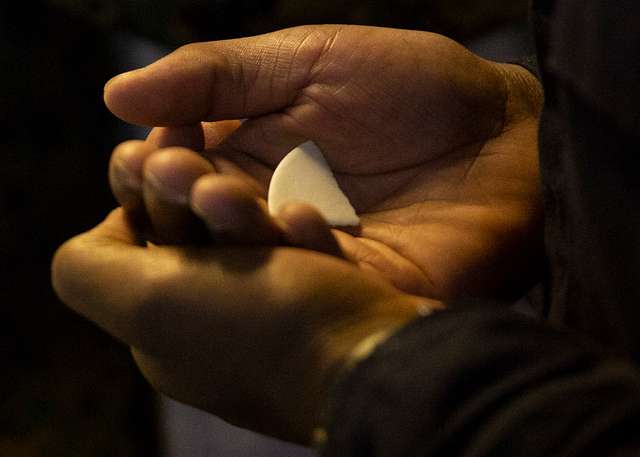It’s Advent! Happy New [Church] Year!
I’m glad that the season of Advent has caught on beyond the Catholics, Orthodox, Anglicans, and Lutherans who have always made a big deal of the church year. Today even many Christians who don’t–usually with the exception of Christmas and Easter–are expanding their spiritual calendar to include Advent.
In many Christians’ minds, including those who have long celebrated it, Advent is mainly thought of as the lead-up to Christmas, a time to start playing Christmas music and getting the shopping done. But there is much more to the Advent season than that.
The word comes from the Latin for “comes to,” so the season is about how Christ “comes to” us. So it has reference to Christmas, His first coming, but it also has reference to the End Times, His second coming. And it has reference to the fact that Christ comes to us now, in Word and Sacrament.
I was struck by this paragraph from the Wikipedia article on Advent:
For Western Christians of the Catholic and Lutheran traditions, Advent signifies preparation for a threefold coming of Christ: firstly in the Incarnation at Bethlehem, then in a perpetual sacramental presence in the Eucharist, and thirdly at his Second Coming and final judgement.
So Christ comes to us in the past, the present, and the future.
Christ’s First Advent
Advent indeed has to do with Christmas. We look back on how Christ came to us then. But we also look ahead to the joyous celebration of that event at Christmas. Advent is a time for preparation, so the literal preparations that we need to start making for Christmas, including all the shopping, are fitting symbols for the inner preparations that we need to be making too in light of Christ’s coming at Bethlehem. That is, we should reflect on our lives, repent of our sins, and rejoice that Christ has come to us for our salvation.
Thus, even while we look back, we look forward. The Bible readings for Advent include the Old Testament prophecies of Christ’s coming. Thus, when we worship in church, we enter the point of view of those living before His incarnation, who yearned for the coming of the Messiah and anticipated it in faith.
Christ’s Second Advent
I was surprised and gratified to see that Wikipedia included us Lutherans with the Catholics in our common belief in Christ’s real sacramental presence in the Lord’s Supper. I guess we are the only Protestants who go that far in affirming that Christ actually “comes to” us in His body and blood.
A difference with the Catholics, though, is that His coming to us in the sacrament is not a matter of Law, requiring reception in a state of moral perfection; rather, it is Gospel, Christ’s body and blood given for you for the forgiveness of all your sins.
So the central way to celebrate Advent and to prepare for Christmas is receiving the Lord’s Supper.
Christ’s Third Advent
Christ has come, and Christ will come again in glory to judge both the living and the dead.
The End Times speculation that has permeated American Christianity–as well as the secular versions of apocalypse with their own prophecies of the end of the world–has turned that into a scary prospect. His coming will indeed be Law for many. His judgment will constitute the final undoing of the evil in the world, which everyone complains about while often being blind to how they themselves contribute to it.
But, properly understood, Christ’s return is also Gospel for those sinners whose robes have been washed in the blood of the Lamb. The resurrection of the dead and the Marriage Feast of the Lamb will be our story’s happy ending.
So Christ’s return is something to yearn for and to anticipate, as the Old Testament prophets yearned for His first coming and as a child yearns for Christmas.
Come, Lord Jesus
Luther has said that the words “for you”–as in “my body given for you” and “my blood shed for you”–are the most important part of the sacrament. To realize that this is for me is saving faith.
Again, “Advent” means “comes to.” Christ’s Advent means that He comes to you. When He was born as a baby in Bethlehem, He came to you. When He is present in the Lord’s Supper, He comes to you. When He will return in glory, He will come to you.
Photo: “A Sailor prepares to take holy communion church service aboard USS Iwo-Jima (LHD 7), Oct. 14,” (U.S. Marine Corps photo by Lance Cpl. Gumchol Cho), via PICRYL, Public Domain Dedication. Public Use Notice of Limitations: https://www.dvidshub.net/about/copyright













